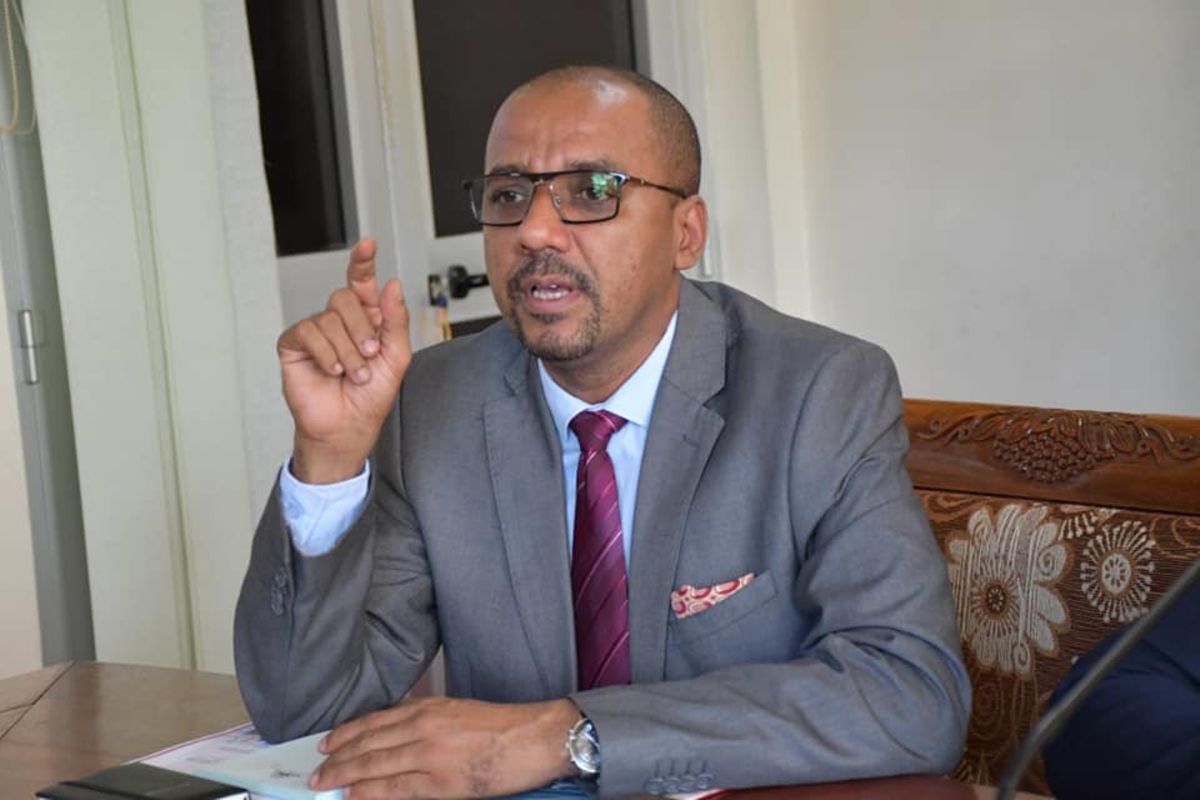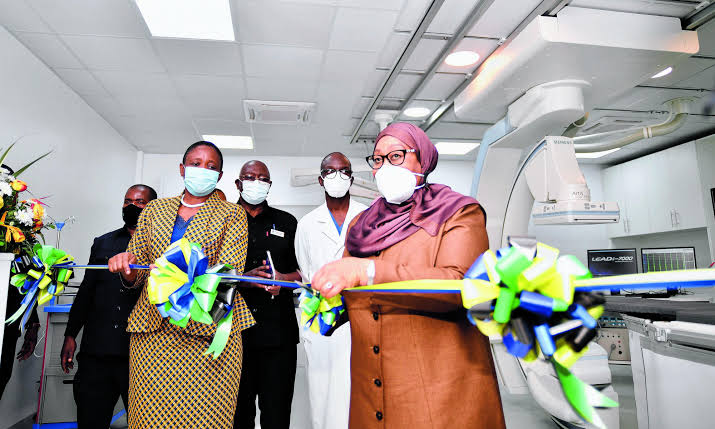TANZANIA’s plan to become a medical tourism hub is slowly but surely becoming a reality after the government’s grand move to expand the Jakaya Kikwete Cardiovascular Institute (JKCI) to its 50,000 square metre of land at Mloganzila in the outskirt of Dar es Salaam.
Envisioned to be the centre of excellence in East Africa and Sub- Saharan Africa, JKCI will be able to scale up treatment of cardiovascular complications which is among non-communicable diseases that are currently on the rise within the country and the world in general.
This new planned facility will not only ease access to heart treatment to local patients but also extend services to patients coming from neighbouring countries among others, Kenya, Uganda, Rwanda, Zambia, Malawi and Comoros.
The new facility at Mloganzila will include a special wing for children, which will have a capacity of between 280 and 350 beds, up from the current 128 beds at the current JKCI building, which is located within the Muhimbili National Hospital (MNH).
The Minister for Health, Ms Ummy Mwalimu recently while inaugurating JKCI Board of Trustees directed the institute to initiate the process of expanding its wings to the area, where there is enough space to carry out the project.
“It will be better for the institute to expand to Mloganzila because there is enough space for patients, and even an area for exercises,” said Ms Mwalimu.
This grand move comes following Prime Minister Kassim Majaliwa’s request extended to the President of China, Mr Xi Jinping, to support the expansion of JKCI during the Beijing Summit of the Forum on China-Africa Cooperation (FOCAC) held in September, 2018 in Beijing, China.
Apart from the extension of the cardiac institute, Tanzania also requested China to support it improve its capability in manufacturing of medicines, medical equipment and training of personnel.
Elaborating on the same recently, JKCI immediate former Executive Director, Prof Mohammed Janabi disclosed that the building will be constructed under joint venture between Tanzanian and China governments, whereby they will share the construction cost of the project.
Prof Janabi, who was recently appointed as the new Executive Director for Muhimbili National Hospital (MNH), said plans were on the right track but were interrupted by the emergence of Covid-19, as China, like many other countries, imposed travel restrictions.
“Covid-19 is the reason behind delays in the project, because our potential partners from China were not able to travel, but everything including designing was in place before the pandemic emerged,” said Prof Janabi.
On his side, a member of the Medical Tourism Committee that is under JKCI, Mr Joseph Kahama, said the government had been spending billions of shillings to send patients abroad.
“Many countries surrounding us do not have such enough health facilities, so it is high time to make use of our facilities to treat our own people and foreigners to save billions of shillings that the government had been spending every year on sending patients abroad,” said Mr Kahama.
Last year when President Samia Suluhu Hassan was inaugurating a 4.6bn/- worth catheterisation laboratory (cathlab) and carto 3 machines at JKCI indicated statistics showing that 33 per cent of deaths in the country are caused by noncommunicable diseases and 13 per cent of those diseases are linked to blood pressure and heart complications.
JKCI is among 25 countries worldwide offering specialised heart treatment with data from last June indicating that the institute saved up to 250bn/- from sending patients abroad to obtain treatment.
The cost of carrying out open heart surgery and associated treatment ranges between 15m/- to 20m/- depending on the type of cardiac complication and surgery. Statistics indicate that JKCI carried out 5,959 heart surgeries by June, last year.
Source: allafrica.com
Share this news
This Year’s Most Read News Stories

Ground handling firms in Zanzibar start cutting jobs
ZAT and Transworld, companies providing ground handling services at Abeid Amani Karume International Airport, have to lay off workers to stay afloat.Continue Reading

Zanzibar free from outbreak of Marburg virus
The Zanzibar government has on Friday April 7 assured international travelers that the Isle is safe and open for business.Continue Reading

Tanzania Declares Marburg Outbreak – Africa CDC Mobilizes Immediate Response

Addis Ababa, January 20, 2025</Strong> — Tanzania has declared a Marburg virus disease (MVD) outbreak after confirming one case and identifying 25 suspected cases in the Kagera Region of Northwestern Tanzania. The Marburg virus, a highly infectious and often fatal disease, is similar to Ebola and is transmitted to humans from fruit bats and monkeys. This outbreak marks the nation’s second encounter with the deadly virus, following the outbreak in Bukoba District of Kagera Region in March 2023, which resulted in nine cases and six deaths.
In response to this urgent threat, the Africa CDC is mobilizing strong support to help Tanzania contain the outbreak. A team of twelve public health experts will be deployed as part of an advance mission in the next 24 hours. The multidisciplinary team includes epidemiologists, risk communication, infection prevention and control (IPC), and laboratory experts to provide on-ground support for surveillance, IPC, diagnostics, and community engagement.
The Director-General of Africa CDC, Dr. Jean Kaseya, has engaged with Tanzania’s President Samia Suluhu Hassan and the Minister of Health to ensure coordinated efforts and secure political commitment for the response.
“Africa CDC stands firmly with Tanzania in this critical moment. To support the government’s efforts, we are committing US$ 2 million to bolster immediate response measures, including deploying public health experts, strengthening diagnostics, and enhancing case management. Building on Tanzania’s commendable response during the 2023 outbreak, we are confident that swift and decisive action, combined with our support and those of other partners, will bring this outbreak under control,” Dr. Kaseya stated.
Africa CDC has recently supported efforts to enhance the diagnostic and sequencing capacity of public health laboratories in Tanzania. PCR Test kits and genomic sequencing reagents have been dispatched, with additional supplies in the pipeline. To ensure rapid identification and confirmation of cases, the institution will also provide technical assistance to strengthen detection and genome sequencing for better characterization of the pathogen. Additionally, support will be provided to improve case management protocols and enhance the capacity to deliver safe and effective treatment.
Africa CDC is committed to working closely with the Government of Tanzania, regional partners, international organizations, and global stakeholders, including the World Health Organization, to stop the spread of the Marburg virus.
Source: allafrica.com











